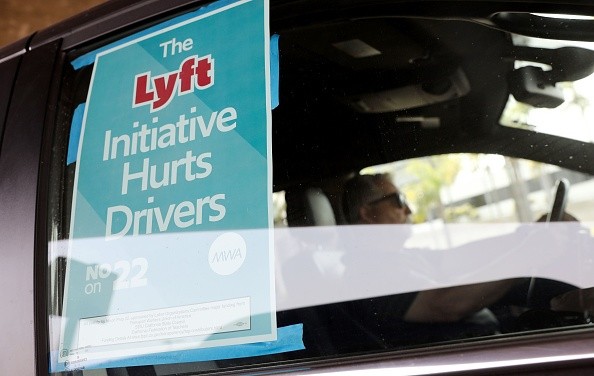Latino Leaders in California Express Income Inequality Concerns Over Prop. 22 With Uber, Lyft

Latino leaders in California expressed some concerns over Proposition 22 (Prop 22) during a news conference Monday.
Prop 22 will allow ride-hailing companies like Uber and Lyft to classify their California drivers as contractors, not employees.
Along with Black leaders, the Latino representatives were worried that Prop 22 will only worsen racial and income inequality in California. They said Prop 22 could exploit the predominantly Latino and Black workforce of the apps.
Companies will not be required to pay their drivers minimum wage, give them sick leaves, unemployment insurance and worker's compensation insurance, reported CBS Los Angeles.
What Does it Mean for Drivers?
It would exempt the companies from the AB5, a landmark law granting minimum wage and health benefits to freelancers and independent contractors. If Prop 22 gets passed, these companies will have to provide other benefits that include minimum compensation health care.
These benefits will be based on driving time, care insurance, safety training and sexual harassment policies.
Lorena Gonzales of San Diego said having the discussion on Prop 22 was "just audacious." The assemblywoman noted that most of the companies' drivers come from communities of color, at 78%.
She added that these drivers are "struggling to make ends meet," acknowledging it as fact. But with the proposition, they will be "[locked] in low wages forever."
International Brotherhood of Teamsters also denounced the move to pass Prop 22.
"Prop 22 exempts these multi-billion-dollar gig corporations from contributing to safety net programs," they said in a statement.
They added that passing it will only maximize the companies' profits "at the expense of taxpayers and their drivers." For Teamsters, the move created a competitive advantage for the tech companies but hurt their workers and small businesses in the process.
Passing Prop 22
The speakers recognized that there was an active movement to pass the Prop 22. Uber, Lyft, Instacart and Doordash have spent about $185 million in their campaign to pass it.
They argued that drivers are not the core part of their business since they are tech companies, not transport companies. San Francisco based Uber and Lyft threatened to leave California if Prop 22 fails, KTLA said in a report.
Cherri Murphy, a driver and organizer based in Oakland, told CBS that voting for Prop 22 and supporting its campaign was "disingenuous." She added that it also dismissed the concerns of the drivers.
"I know what it's like to work long hours with no guaranteed wages, no work breaks, no restrooms," she said. "I know what it's like to have the looming threat of an accident with no coverage, and deactivation based on race."
Murphy called to fight against letting corporations "buy labor laws" that can exploit its workers.
Passing Prop 22 will require a seven-eighths majority vote from the state Legislature. If it pushes through, drivers like Murphy will be left without protections or benefits for years to come.
The group Mothers Against Drunk Driving announced its support for the proposition. They held their own campaign event supporting it on Monday.
They said ride-hailing services like Uber and Lyft have helped in reducing the amount of drunk and drugged driving in the state.
Check these out!
California Theme Parks Need to Stay Closed, Newsom Says
Orange County Remains on Red Tier as Hospitalizations Decline
California Republicans Set Up Fake Ballot Drop Boxes Marked as 'Official'
Subscribe to Latin Post!
Sign up for our free newsletter for the Latest coverage!
















